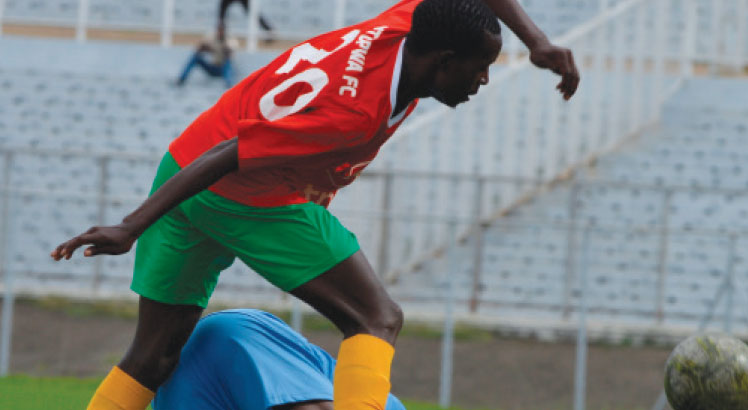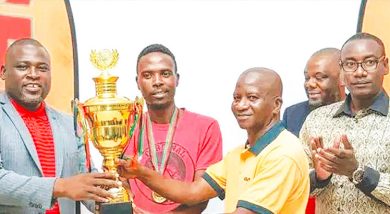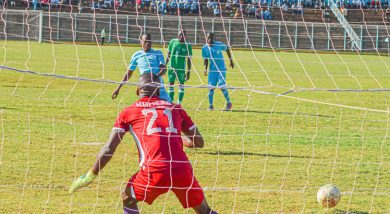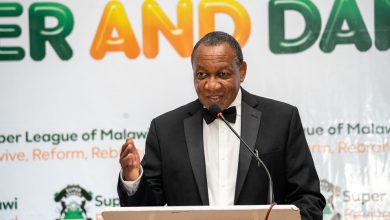Sports bodies Decry mw2063
Local sports bodies have bemoaned that the Malawi Vision 2063 (MW2063), a new government development blueprint touted to create wealth and self-reliance in all economic sectors, falls short of including sports as potential sector than can transform the country.
In separate interviews this week, the sports bodies said the sports industry is not thriving because it plays second fiddle to other sectors despite having potential to contribute to the country’s economic development in various aspects such as job creation, tax revenue and foreign exchange.
Netball Association of Malawi (NAM) general secretary Isaac Chimwala said MW2063’s target for sports is too general and does not inspire confidence that it would bring the much needed transformation.

Super League struggled financially
Reads the MW2063 statement on sports: “Our drive to sports development shall be diverse and inclusive. We shall develop sports to cater for both physical and mental development, and also as an industry where our sports men and women shall compete at the international level as well as boost tourism.
“We shall develop and upgrade sports infrastructure, especially in schools. Particular attention will be given to encourage and enhance the active participation of persons with disabilities in sporting activities at all levels. Efforts will be made to support more of sports disciplines that will accelerate our inclusive wealth creation and self-reliance agenda.”
Chimwala said while there has been a good attempt to demonstrate government’s commitment to supporting sport, the statement does not outline how the sports vision will be implemented.
He said: “I find this statement too general. It needs enhancement to show how to achieve what is contained in the summary. One can hardly see the operationalisation of the process as laid down in the vision.”
On his part, Athletics Association of Malawi acting general secretary Mzee Makawa also described MW2063 statement on sports as a smokescreen.
He said local sports require a lot of investment to become competitive, professional and run on commercial basis to generate money for the country.
Said Makawa: “What I have noticed in the Malawi 2063 is that it is not elaborate enough on how sports in Malawi can become a force to be reckon with. Sports can create wealth and transform the lives of athletes as well as improve the economy of the country.”
Meanwhile, sports marketing analyst Kevin Moyo has said he was not surprised that associations are sceptical about MW2063 as there has been little success for sports in Malawi at global level since independence.
He said: “Our achievement on the international sport arena since independence 57 years ago leaves a lot to be desired. It is high time government, through Sports Council, show seriousness in as far as sports development is concerned in the country.
“As a nation, we have made no progress in producing top athletes, despite making so many promises and producing beautiful sports documents as regards sport development. The measure used to gauge a successful sporting nation is by looking at its achievement in International Olympic Committee-sanctioned sport and Malawi has failed miserably in this regard.”
Former Football Association of Malawi administrator and renowned sports analyst Charles Nyirenda also said there was a need for a comprehensive report on how Malawi 2063 will achieve sports development, starting from now.
“A comprehensive and do-able plan ought to be developed for each district, stipulating the type and models of specific sports infrastructure. Such a plan doesn’t have to wait until we reach the deep future.
“We need to agree right now that once our plans are clear, the development thrust has to be in say, five-year slots because talking about Vision 2063 which is 42yrs ahead in general terms is like postponing what should start now in earnest.”
Reacting to the concerns, National Planning Commission communication manager Thom Khanje said the blueprint seek to develop sports from the grass roots level while making it inclusive.
He said: “In the Malawi 2063, sports is considered an important element of human health and development; hence, falls under the ‘Human Capital Development’ enabler of the vision.
“We shall develop and upgrade sports infrastructure, especially in schools. Particular attention will be given to encourage and enhance the active participation of persons with disabilities in sporting activities at all levels. Efforts will be made to support more of sports disciplines that will accelerate our inclusive wealth creation and self-reliance agenda.”
Khanje said the vision could not have given a detailed report on how they would achieve their vision on sports as that will be done in phases.
“The sports associations that have expressed their concerns may wish to read the vision document again and look at it beyond their specific disciplines. They may also wish to note that the vision is a general and broad expression of development aspirations by the people of Malawi and that it may not contain specifics for every sports discipline,” he said.
On the associations concern regarding sponsorship and funding, Khanje admitted that it is a challenge, but said associations should be innovative in marketing sports.
“All over the world, sports, among others, is supported through TV rights and advertising endorsements,” he said.





